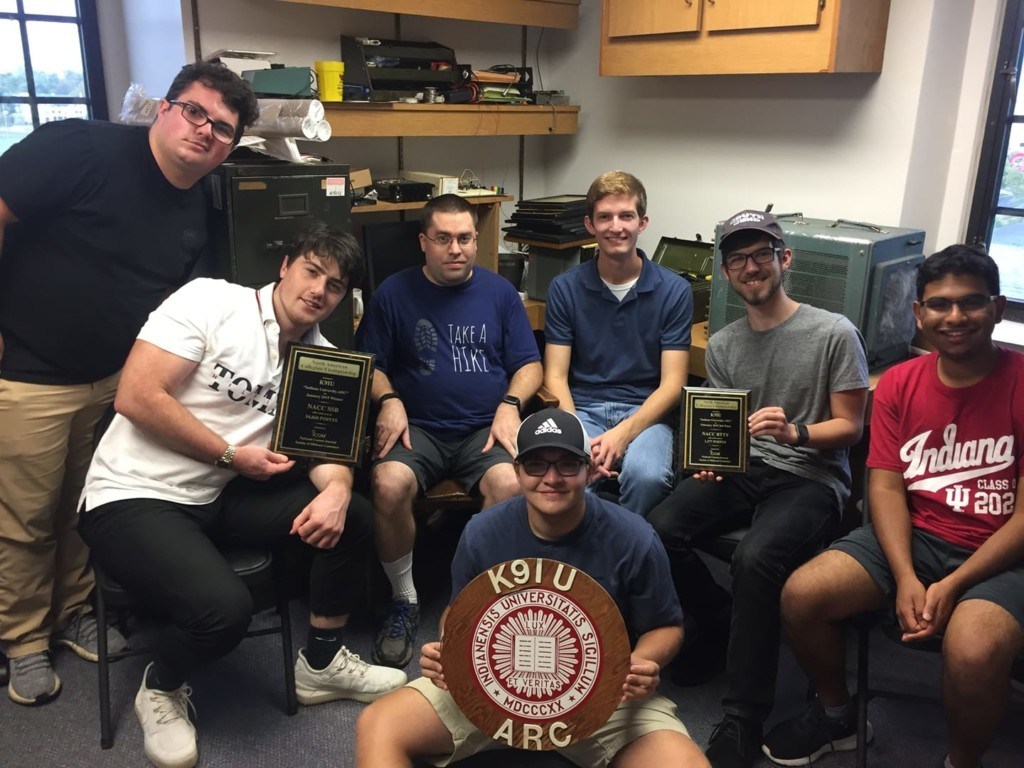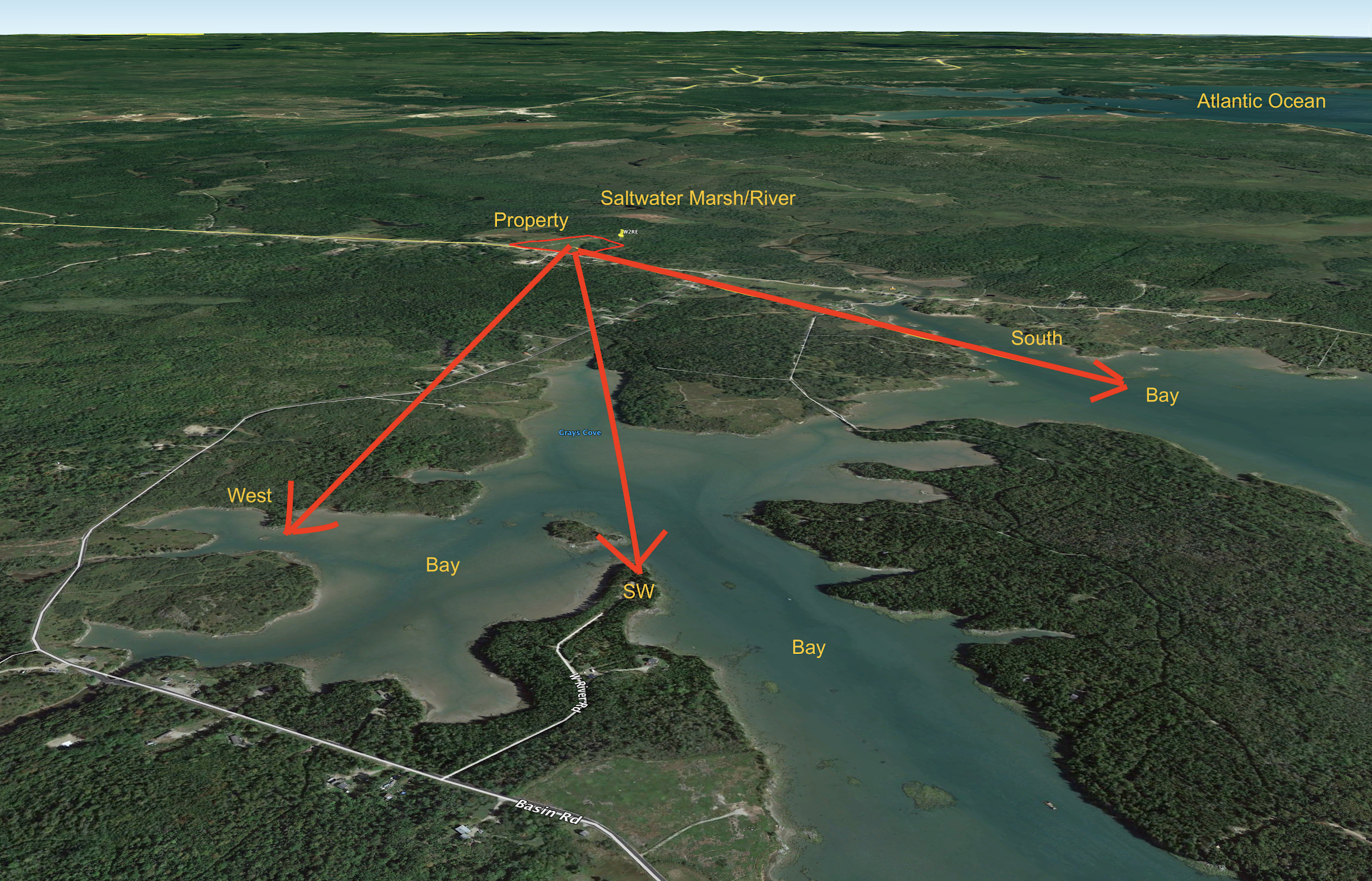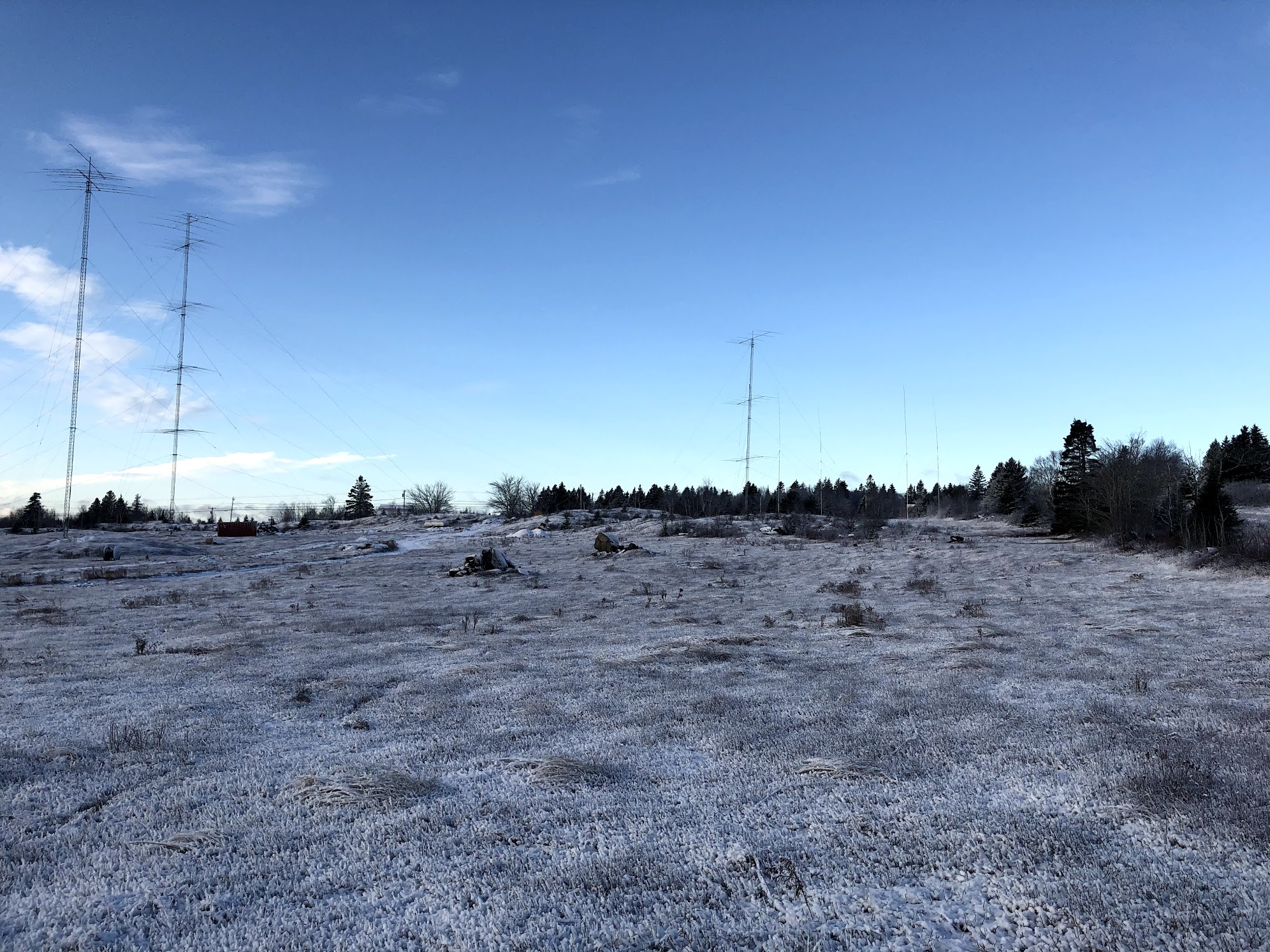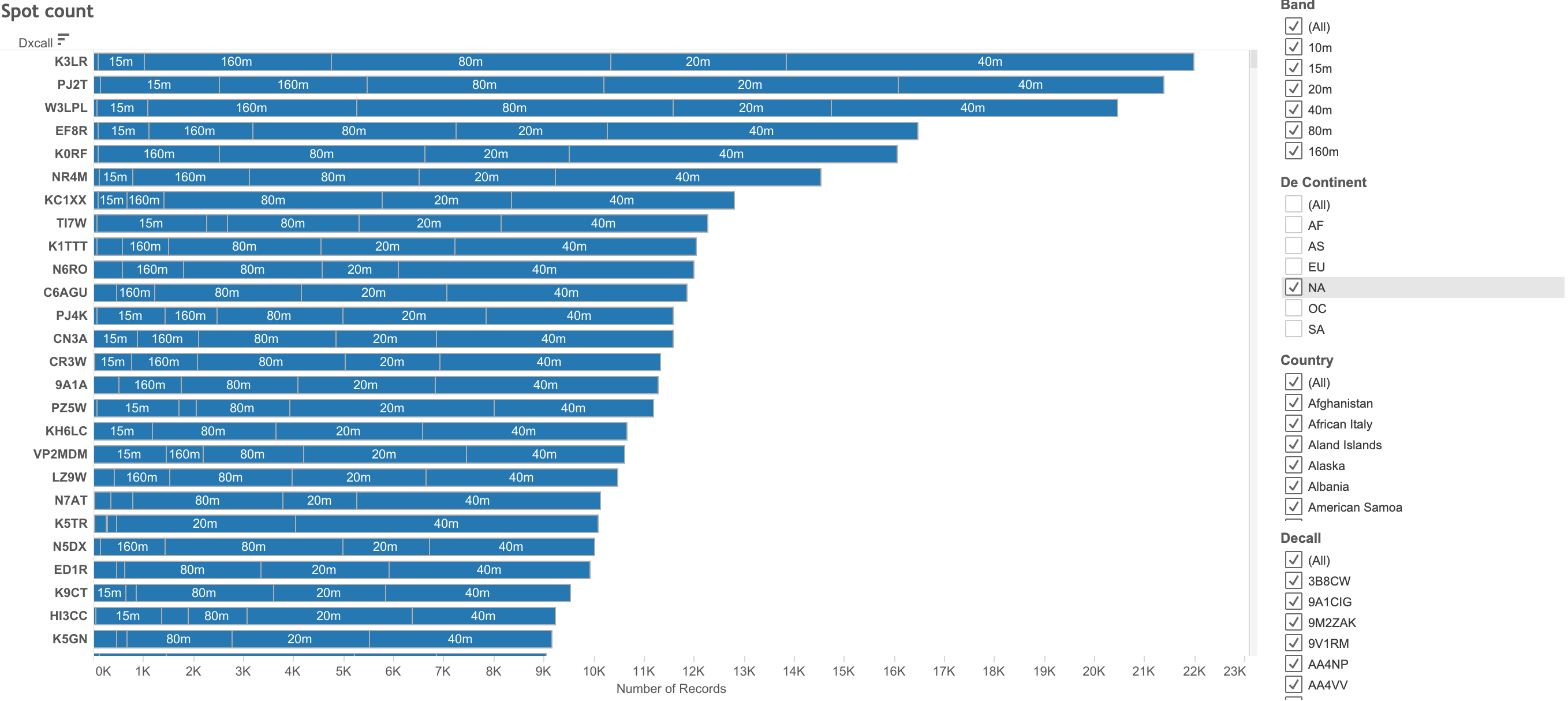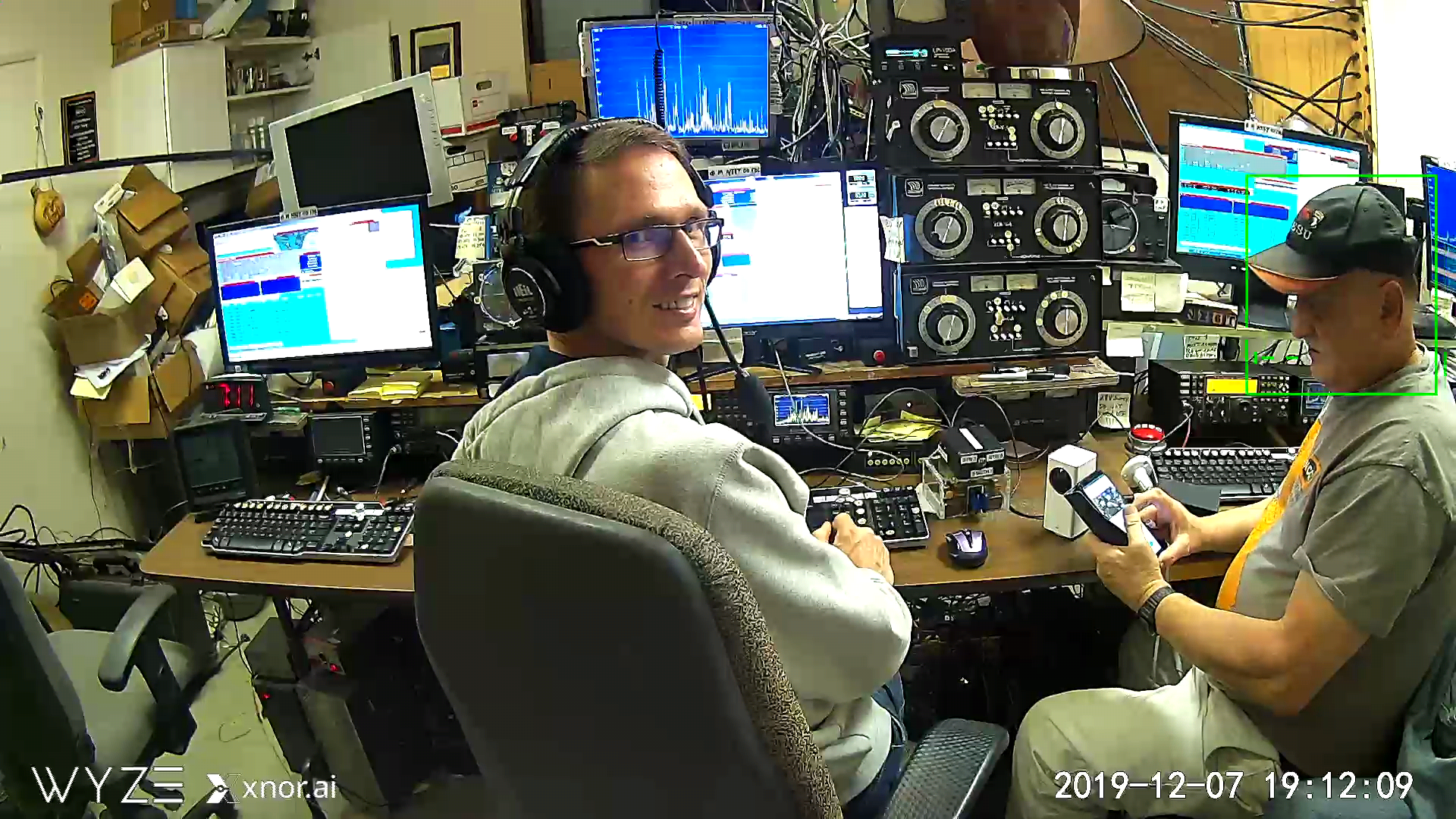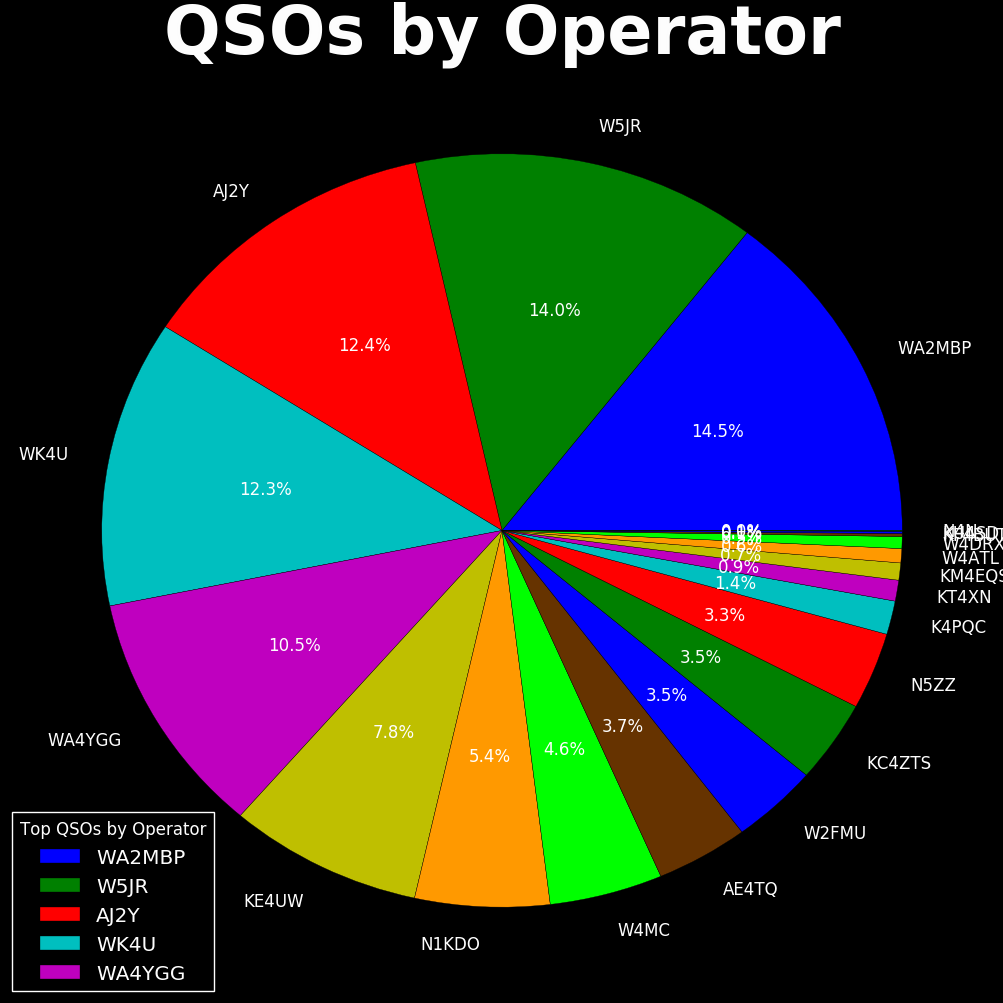 December 11, 2019 Editor: Paul Bourque, N1SFE | |||||||
IN THIS ISSUE
ARRL Rookie Roundup events are for everyone, and they especially encourage those that are newly licensed or newly active to get on the air in a contest format. The CW event is December 22. This is a change from its normal weekend, moved so there's not a conflict with the ARRL 10 Meter contest. Try doing both contests! The RAC Canada Winter Contest is a popular semiannual event with Phone and CW modes and plenty of activity. If you enjoy digital modes, the ARRL RTTY Roundup is January 4-5, 2020. Sure, you can use FT8 if you like. See the contest rules for more information and a link to an article on the particulars. If you're going to be attending Dayton Hamvention in 2020, consider attending Contest University 2020 in downtown Dayton, Ohio, on the Thursday before Hamvention. Complete information for all contests follows the Conversation section 12 Dec 2019 - 8 Jan 2020 December 12 December 13 December 14 December 15 December 16 December 18 December 19 December 20 December 21 December 22 December 25 December 26 December 27 December 28 December 29 December 30 December 31 January 1
January 2 January 3 January 4
January 5 January 6 January 7 January 8 This is the 2019 year-end super spectacular double issue! After this issue, the next Contest Update will appear on January 8, 2020. Happy Holidays & New Year! The ARRL 10 Meter Contest is on December 14. This isn't exactly the time in the sunspot cycle to expect a lot of 10 meter DX action, so scores could be a bit dampened. There are other ways to set goals for yourself, though. This contest has TWENTY operator entry categories. Just for fun, lets figure out if there are some contest records we could break. We'll start by looking at the ARRL 10 Meter contest records up to 2017. The easiest way to set a new record is to find one that hasn't been previously set! We hit pay dirt on the first page of ARRL Section records. Looks like there aren't any records for SOA-MIX-QRP or SOU-CW-QRP for the Colorado ARRL Section. Checking the 2018 Contest Results, it appears nobody from Colorado entered either of those categories for 2018. You can make a decent effort in 2019, knowing that you're only competing against other 2019 Colorado stations for the record. Sure the record may not survive the next upturn in sunspots...but it could be a fun goal. I'm not going to do your work for you, but here's a secret: It appears that nearly every ARRL Section has at least one record that has never been set as of 2017. From my reading, only Mississippi and North Texas have all of the record slots filled (again, as of 2017). Do your own research before you book your tickets and pack your amplifier, microphone, and computer to Indiana to try to set the SOU-PH-HP (Single operator, unlimited, phone, high power) record. This time of year there are a few "specialty" contest and events centered around the season. The Colorado Snowshoe Contest is focused on QRP CW operating. Feel like staying up on the evening of December 25? The DARC Christmas Sprint Contest on 40 and 80 meters is similar to NA Sprints. The German 2.5 hour event includes BOTH CW and SSB. Make sure you read the rules, and pay heed to the allowable frequencies. The RAC Canada Winter Contest is serious (fun) business. Last year's event saw nearly 600 log entries spanning more than 86,000 contacts, despite discouraging conditions. The top CW log in 2018 had 1,258 contacts. This year's event is 0000 UTC to 2359 UTC December 28, 2019, and if you get on the air that day, you'll find plenty of people to work. If you operated in the ARRL 160 Meter Contest last weekend, please send any "pictures ...highlights and other things that tickle your fancy" about that contest to Mark, N5OT - he's putting together the 2019 results article for this event. Here are the results from 2018's event. December 16 is the first day that you can register for Contest University 2020. Contest University will be at the usual spot in Dayton, Ohio on Thursday May 14, 2020. You can get a refresh on RTTY operating tips from K0AD's 2016 Presentation "Tips for Better RTTY Contest Operation" in preparation for a slew of diddle delights over the next few weeks. Sticking to a digital diet, get in the RTTY contesting mood on December 21 with the OK DX RTTY Contest, maintain with the NCCC Thursday RTTY Sprint practices, start the digital New Year right with the SARTG New Year RTTY Contest, and then gorge yourself the weekend of January 4 in the ARRL RTTY Roundup. According to the Dayton Hamvention Twitter feed, Hamvention admission and booth fees will both increase in 2020. An article on the ARRL website quotes Hamvention Chairman Jack Gerbs: "the economic pressures to present a show like Hamvention" as the reason for the price increases.
The North American Collegiate Championship 2020 has been announced. Any college or university radio club in North America is encouraged to compete in this contest occurring concurrently with the NAQP Phone and NAQP RTTY contests. All teams must pre-register and operation must be from the college or university campus. Scores are reported live via the Contest Online Scoreboard. Challenges are encouraged. Want to help as an alumnus? Contact your alma mater's radio club and ask how you can help. Only currently enrolled students are allowed to operate. Yaesu is this year's sponsor of the Orlando Contest Dinner on February 7, 2020. This event is held in conjunction with Orlando HamCation, and hosted by the Florida Contest Group. Dave Sumner, K1ZZ, will the guest speaker, and attendance is capped at 200. See the event website for more information. Rick, K1DS, overcame a bunch of issues to get on for the recent ARRL EME Contest, and then wrote about it for the December 2019 Mt Airy "Packrats" VHF Radio Club's Cheese Bits newsletter. Check out page 6 for his article "Murphy Go Home - I Have a Contest this Weekend." The Sun City Grand Hams publish the Grand Hams newsletter each month. Here's "A unique Approach to Lightning Protection" by Gordon, NW7D, from December 2019's SCG Hams Newsletter: "Amateur Radio Operators in India have taken a proactive approach in helping reduce deaths by lightning to area farmers and shallow water fishermen. By providing a device that will attract lightning, it tends to reduce lightning hits to humans in open fields and shallow water. The low-cost device is strikingly simple: A bicycle wheel is attached to the top of bamboo pole that is installed in the open field or shallows. A wire cable attaches the bicycle wheel to an earth ground at the base of the bamboo pole which is inserted 3 feet into the ground. The soil surrounding the base of the pole is treated with salt and charcoal so as to help with conductivity. The "Earthing" process was promoted by the West Bengal Radio Club. The Ham Radio club also is very active in providing emergency communications in the area especially during monsoons." A couple of Contest Update issues ago a link to a survey about the Louisiana QSO Party was published to solicit comments on how to improve the event. The contest's sponsor, the Louisiana Contest Club, want to increase participation by being thoughtful about changes to the event, and responsive to survey feedback. Scott, W5WZ, shared some of their pending improvements based on this "customer" feedback, which might be relevant to any contest sponsoring organization: Online log submission form -- similar to ARRL and CQ sponsored contests that are familiar tools to many hams
Additionally, "With these greatly improved tools, the log submission deadline will now be 10 days after the end of the contest. Our goal is to be able to post the final results online about 30 days after the contest ends." Scott anticipates that these improvements will be complete by February, 2020, in time for the next LAQP event the weekend of March 21, 2020. Scott notes that other changes are in the offing, including:
Here's a different kind of contest involving radios - the US Air Force will have a competition next year to see if hacking teams can take control of a military satellite. For such a challenge, it's probably useful to have people that understand the "full stack," including the PHY layer, which would include radio links. Ray, W2RE, has seen a lot of radio locations in the course of his business Remote Ham Radio. He writes: "In May 2019 I purchased 22.5 acres in Jonesport, Maine on the ocean to build my own personal remote contest station. At about this same time Krassy, K1LZ was dismantling his station in Massachusetts and contacted me. We spoke at the Dayton Hamvention and discussed joining forces, and agreed to build a MEGA station together -- but first we had to dismantle his world class station. His five towers in Massachusetts were decommissioned in June, and in August I received the building permit from Jonesport to build six towers up to 200 feet high. I broke ground in late August, and the first tower was soon under test.
In September, while using the first tower with the GXP multiband antenna we quickly realized we have an awesome QTH! In October my son Bobby, KC2UPN, and I prepared four more tower bases and 12 anchors with concrete. Over the next five weeks our crew installed the additional 4 towers to nearly 200 feet, and increased the height of the first tower from 90 to 140 feet. We installed 5 towers and 28 antennas.
Fast forward to CQWW CW in November. Krassy, K1LZ, and Velimir, K3JO, put this world class remote station on the air to explore the limitations of the remote system deciding to enter the multi-single category the old way with two operators. A few weeks after the contest, 3830scores.com still shows them at the top of all US scores in that competitive category. The long-term goal is to compete in the multi-2 and multi-multi categories remotely. We call the station W1/Jonesport. It will be shared by Krassy and I during contests and open to RHR members for daily use. We have two 20 foot cargo storage containers and 8' x 12' building housing all the equipment with high speed Internet. This station is already available on RHR for daily use. This location is truly unique - here are a couple of YouTube videos (video1, video2) of the location. Last weekend, Krassy operated the ARRL 160 Meter Contest from the location as SOHP. Though it's still a little early, so far he's holding the #1 spot in the USA/VE results. Also scoring at the top in the USA/VE results is K1A, operated by KO7SS using RHR W1/Eastport, single operator high power unlimited. So, two of the top scores in ARRL 160 USA/VE on 3830 are remote stations. 73 & Happy Holidays -- Ray W2RE" Your personal remote station will work better with excellent internet connectivity. If you're scouting for locations, how about Kentucky? Octave The interval between a frequency and another twice the original frequency. The range of 7 MHz to 14 MHz is an octave.
OH2BBT has created and shared some Tableau visualizations of the 2019 CQ WW DX Contest Data. You can pivot and slice and dice to your heart's content. (via HK3W via Twitter).
The 2019 Louisiana QSO Party results are now available. Seventy-eight logs were submitted! The next running of the LAQP will be 1400 UTC April 4, 2020 to 0200 UTC April 5, 2020. Raw scores for the 2019 CQ WW DX CW contest have been posted. (John, K1AR, via CQ-Contest) Ya Gotta Run With the exception of contests like sprints where there isn't a concept of running, if you want to win, you'll have to run. In most contests, there are many casual contesters that will mostly search and pounce, and you have to be able to get casual contesters into your log. A few years ago I was forming a tube chimney for an amplifier renovation and re-tube, and needed to glue a silicone rubber sheet to itself to make a cylindrical chimney to fit over a metal ceramic tube. I wasn't sure of the suitability of the glue I had on hand, so it required some testing. Today, it's easier. Advice on appropriate glues is available from the thistothat.com website, which lets me plug in the this and the that, and suggests an adhesive. I've never used Barge before, but now I want a can because it seems to be able to glue a lot of things. (Ward, N0AX) Lance, W7GJ, notes, "VE7BQH updated his valuable Antenna Comparison Tables yesterday. As usual, the updated tables are available as a link from my website." According to Lance, only the 144 MHz antenna tables were updated. We mentioned the NXP Design Contest winners in the November 27 Contest Update; in grand ham tradition, the AKADEMISK RADIOKLUBB in Norway was inspired by WA2EUJ's winning design to do their own push-pull design at the 10 W power level. Simulations were done, schematics were captured, PCBs were laid out. Watch their blog for an update on how well theory and modeling meets practice! Node Red is an open source project that (simplified) provides a visual layout environment that can control underlying functional blocks. But what it can do for YOU is provide a means to create custom dashboards and control panels on your screen to control pieces of shack functionality or automate workflows. Here's an overview from the Flex Radio support forum, along with some follow up information on how some are using it in their stations. K9ZW provides a nice overview on his blog, as well. Readerboard In a past conversation I mentioned that it's important to measure what you want to improve. Contest logging programs generally can display the statistics you need to help make moment-to-moment decisions on your operating. When I get together with friends to do a multi-operator contest, I like to have an "N+1" logging laptop computer set up, for two reasons. If we have a computer failure (this is a low-probability event), we can replace the broken one immediately. Another reason is to be able to do ad-hoc queries on our operating statistics like rates, number of contacts, multipliers, operator QSO counts, and so on. This is part of our "contest intelligence." N1KDO's n1mm_view project on GitHub goes beyond the extra logging computer. His application rotates through a number of Field Day statistic screens to keep everyone abreast of sections, rates, QSOs per operator - some great Key Performance Indicators (KPIs).
I'm thinking that we're going to start keeping our own easy-to-read dashboard going of the metrics that we think are most important for our multis and put it on a big screen so we can have a shared understanding of our metrics. It could help to keep the whole team more "in the game," and expose us to more information to help us make better operating decisions as a team. That's all for this time. Remember to send contesting related stories, book reviews, tips, techniques, press releases, errata, schematics, club information, pictures, stories, blog links, and predictions to contest-update@arrl.org 73, Brian N9ADG 12 Dec 2019 - 8 Jan 2020 An expanded, downloadable version of QST's Contest Corral is available as a PDF. Check the sponsors' website for information on operating time restrictions and other instructions. HF CONTESTS CWops Mini-CWT Test, Dec 11, 1300z to Dec 11, 1400z and, Dec 11, 1900z to Dec 11, 2000z and, Dec 12, 0300z to Dec 12, 0400z; CW; Bands: 160, 80, 40, 20, 15, 10m; Member: Name + Member No., non-Member: Name + (state/province/country); Logs due: December 14. VHF+ CONTESTS AGCW VHF/UHF Contest, Jan 1, 1400z to Jan 1, 1700z (144) and, Jan 1, 1700z to Jan 1, 1800z (432); CW; Bands: 144 MHz, 432 MHz; RST + "/" + Serial No. + "/" Power class + "/" + 6-character grid locator; Logs due: January 2. Also, see RAC Winter Contest, SKCC Sprint Europe, above. 12 Dec 2019 - 8 Jan 2020 December 12, 2019 December 13, 2019 December 14, 2019 December 15, 2019 December 17, 2019 December 19, 2019 December 20, 2019 December 22, 2019
December 31, 2019 January 1, 2020 December 14, 2019 December 15, 2019 December 19, 2019 December 20, 2019 December 21, 2019 December 22, 2019 December 23, 2019 December 25, 2019 December 26, 2019 December 27, 2019 December 28, 2019 December 29, 2019 December 30, 2019 December 31, 2019 January 2, 2020 January 3, 2020 January 4, 2020 January 5, 2020 January 6, 2020 January 7, 2020 January 8, 2020 ARRL Information Click here to advertise in this newsletter, space subject to availability. Your One-Stop Resource for Amateur Radio News and Information ARRL membership includes QST, Amateur Radio's most popular and informative journal, delivered to your mailbox each month. Subscribe to NCJ - the National Contest Journal. Published bimonthly, features articles by top contesters, letters, hints, statistics, scores, NA Sprint and QSO Parties. Subscribe to QEX - A Forum for Communications Experimenters. Published bimonthly, features technical articles, construction projects, columns and other items of interest to radio amateurs and communications professionals. Free of charge to ARRL members: Subscribe to The ARRL Letter (weekly digest of news and information), the ARES E-Letter (monthly public service and emergency communications news), Division and Section news -- and much more! ARRL offers a wide array of products to enhance your enjoyment of Amateur Radio. Visit the site often for new publications, specials and sales. Donate to the fund of your choice -- support programs not funded by member dues! Reprint permission can be obtained by sending email to permission@arrl.org with a description of the material and the reprint publication. ACKNOWLEDGMENTS ARRL Contest Update wishes to acknowledge information from WA7BNM's Contest Calendar. | |||||||
